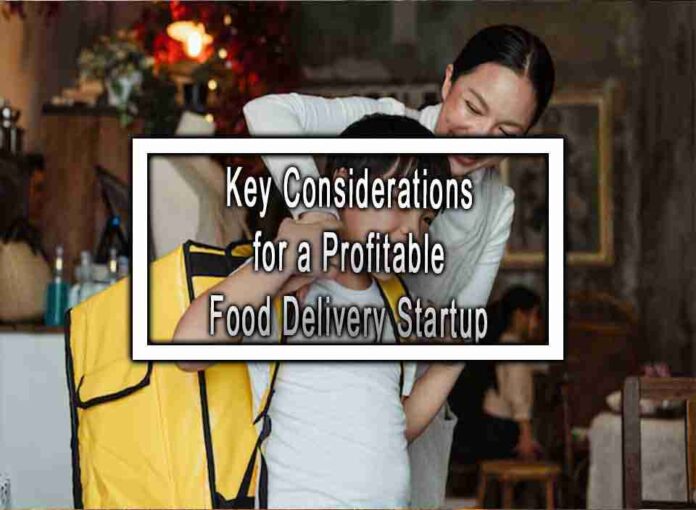Starting a profitable food delivery startup requires careful planning and execution. Here are key considerations to ensure success:
1. Market Research:
– Conduct thorough market research to identify the demand for food delivery services in your target area. Analyze your competitors, understand customer preferences, and identify gaps in the market.
2. Unique Selling Proposition (USP):
– Determine your food delivery startup’s USP that sets you apart from competitors. It could be faster delivery times, a diverse menu, healthy food options, or specialized cuisines.
3. Technology and App Development:
– Invest in a user-friendly and efficient food delivery app or website. The platform should allow customers to browse menus, place orders, track deliveries, and make payments seamlessly.
4. Partner with Restaurants:
– Build partnerships with popular and diverse restaurants in your area. Offer them a platform to reach a wider audience, and negotiate fair commission rates to maintain profitability.
5. Delivery Logistics:
– Optimize your delivery logistics to ensure timely and accurate deliveries. Consider factors like delivery radius, delivery personnel, vehicle requirements, and route planning.
6. Pricing and Profit Margins:
– Set competitive pricing for your delivery service while ensuring profitable margins. Consider factors like delivery distance, order volume, and commission rates for restaurants.
7. Quality Customer Service:
– Provide excellent customer service to build a loyal customer base. Address customer queries, complaints, and feedback promptly to enhance the overall experience.
8. Marketing and Promotion:
– Implement a comprehensive marketing strategy to attract customers and build brand awareness. Utilize social media, digital marketing, promotions, and referral programs to drive customer acquisition.
9. Compliance and Licensing:
– Ensure your food delivery startup complies with all local regulations and licensing requirements. This includes food safety standards, health permits, and any specific regulations for food delivery businesses.

10. Scalability and Expansion:
– Plan for scalability from the beginning to accommodate future growth. Consider expanding your services to new areas or introducing additional features to attract a broader customer base.
11. Data Security and Privacy:
– Safeguard customer data and ensure secure payment processing to build trust and credibility with your customers.
12. Feedback and Continuous Improvement:
– Encourage customer feedback and use it to make continuous improvements to your service. Adapt to customer needs and preferences to stay relevant in the market.
Remember that starting a food delivery startup requires significant effort and resources. Be prepared for challenges and stay adaptable to changing market dynamics. By providing value, convenience, and excellent service, you can build a profitable and successful food delivery business.











